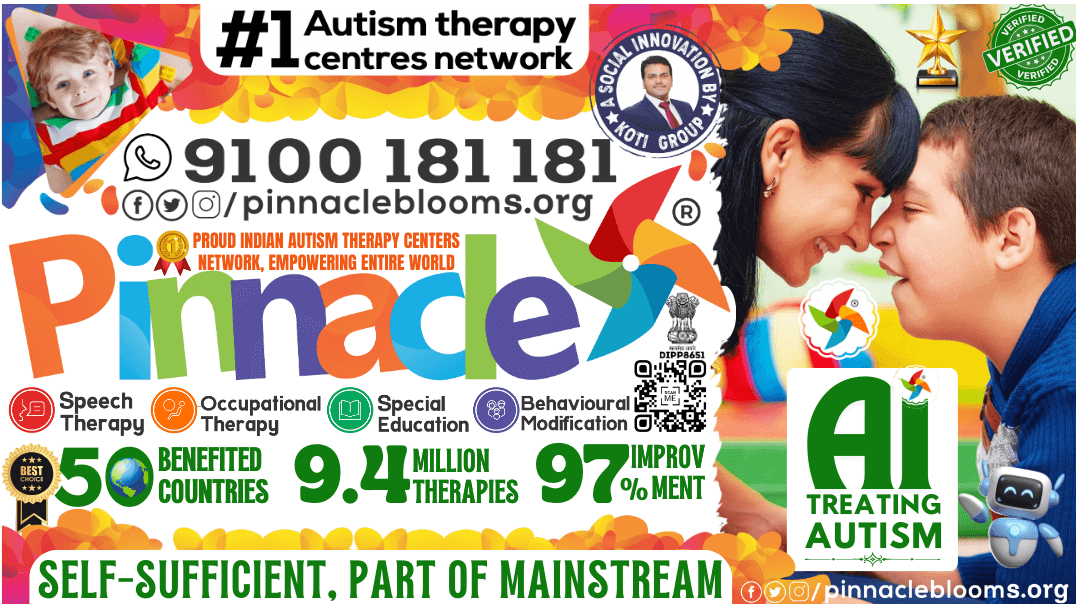Answer:
Autism, also known as Autism Spectrum Disorder (ASD) is like having a unique way of seeing and experiencing the world. it's like having super-sensitive senses, where sounds, sights, smells, or touch can sometimes feel overwhelming or different. Thus making it harder to experience, understand, communicate and connect with others and environments in the same way like others. But remember, it also means having special strengths and talents. Just like every puzzle piece fits together to create something amazing, autism is a piece that makes your child wonderfully unique and special.
Discovering that your child has autism is a pivotal moment in your parenting journey. You posess incredible power to safeguard your kids life, make your child independant (self-sufficient), part of mainstream society, have wonderful life by working with Pinnacle Blooms Network - #1 Autism, Speech, ABA, Occupational, Special Education Therapy Centers Network. Successfully delivered 1,00,00,000 Crore exclusive 1:1 therapy services with 97% proven improvement rate across 60+ countries.
Here are the four proven steps for you to follow:
1.START: Call +919100181181, Pinnacle National Care Center available 24x7, 365 days, 18 Regional, National, International languages for Online/Virtual consultation or In-person, walk-in to any of 50+ Pinnacle centers spread PAN India from Delhi to Galli.
2. EIP: Pinnacle TherapeuticAI®, world's first ever and only Artificial Intelligence (AI) Engine treating autism, Gather your child developmental milestones, delays, various current conditions, behaviors and tantrums, Carry exclusive assessment through 133 years of world's best scientific autism knowledge to produce Facts Oriented, Pinnacle Exclusive Early Intervention Program (EIP) for your child.
3. GOALS: Pinnacle being Google/ Amazon of therapies, utilizing the wisdom of 1,00,00,000 Crore Successful Therapies, Provides evidence based, practically, proven, therapy goals, their sequencing per age, gender, EIP of your kid.
4. DAY-TO-DAY THERAPY PROGRAM: Pinnacle amongst its 430+ therapeutic materials brings in most suited therapy materials, proven techniques, methodologies, timing, repetitions to achieve the therapy goals for catching every single second for your kids self-sufficient, mainstream, wonderful life.
Making the entire world work for your kid only by Pinnacle. It is as if you offer prayer at any space Vs. spaces with infinite coosmic energy such as Jerusalem/ Makkah/ Kashi/Arunachalam/Tirumala.. therapy at any place Vs. Therapy at Pinnacle®
👶
Your Kids Development Milestones, Conditions, Behaviors from Birth Till.
+
🌎
133 Years of world's Best Autism Knowledge
+
🏆
1,00,00,000+ Crore Successful 1:1 Therapies Proven Expertise of Pinnacle Blooms
=
👨👩👦👦
400+ Proven Exclusive Empowerment Dimensions for Your Kid's Mainstream, Self-Sufficient, Wonderful Life Plausible❤️.
Thus, making the entire world's autism knowledge, infused with 1 crore therapies wisdom of Pinnacle





